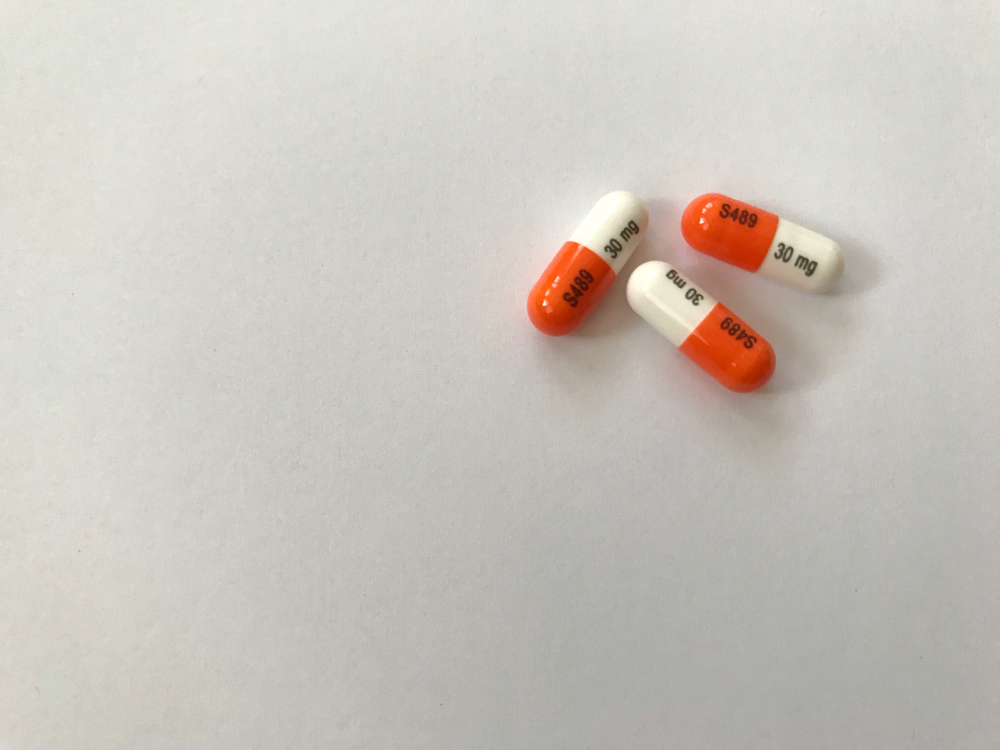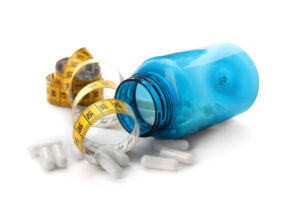Vyvanse and Adderall are often at the top of the list of medications prescribed to treat attention deficit hyperactivity disorder (ADHD), and for good reason–both of these stimulants are highly effective in treating ADHD symptoms.
As Vyvanse and Adderall are both in the amphetamine class of substances, they have many similarities. They also have a few critical differences. Read on to find out what those are, as well as the proper usages, interactions, and side effects when considering whether Adderall or Vyvanse may better suit you.
If you are interested in treating your ADHD symptoms with medications like Vyvanse or Adderall, Klarity can help. We’ll connect you with a licensed healthcare provider in your state for affordable and convenient online ADHD treatment. Your provider will create a personal plan for your symptoms and help you determine if a prescription ADHD medication is right for you.
Schedule an appointment with a licensed medical professional in your state in just 48 hours and start your journey toward ADHD symptom relief.
| Vyvanse | Adderall | |
|---|---|---|
| Drug Class | Schedule II stimulant | Schedule II stimulant |
| Brand / Generic Status | Brand name (no generic) | Brand name for amphetamine salts |
| Form(s) of the Drug | • Extended-release capsules* • Extended-release chewable tablets *Capsules should not be crushed or chewed |
Immediate-release tablets; Extended-release capsules |
| Standard Dosage | • 5 mg, 10 mg, 20 mg, 30 mg, 40 mg, 50 mg, 60 mg, and 70 mg capsules OR chewable tablets • OR chewable tablets |
5mg to 30mg for all forms |
| Conditions Treated | FDA-approved for: • ADHD, • Binge-eating disorder Off-label uses: • Narcolepsy, • Binge-eating disorder |
FDA-approved uses: • ADHD • Narcolepsy Off-label uses: • Depression • Anxiety • Bipolar disorder |
| Cost | Brand-name: • $400 to $450 for 30 days of 30mg capsules or chewable tablets |
Brand-name Adderall: • $8 per 5mg tablet • $237 for a 30-day supply Generic form (amphetamine salts): • $13 for 30 days of 5mg tablets • $85 for 30 extended-release pills |
| Side-Effects | Common side effects: • Anxiety • Diarrhea • Dizziness • Dry mouth • Irritability • Nausea • Trouble sleeping • Vomiting • Weight loss • Upper stomach pain Serious side effects: • Blurred vision • Irregular or fast heartbeat • Muscle twitching • Uncontrolled movements • Blood flow problems in the fingers and toes • Swelling in the ankles and feet • Rapid and unexplained weight loss • Mood changes, including aggression and depression |
Common side-effects: • Decreased appetite • Weight loss • Dry mouth • Nausea • Headache • Fever • Trouble sleeping Serious side-effects: • Signs of blood flow problems • Behavior changes • Uncontrolled movements • Shortness of breath • Irregular heartbeat • Seizures • Trouble speaking |
| Warnings For Use | Contraindicated for: • History of substance abuse • Heart abnormalities • Circulation issues • Mental health issues |
Drug interactions: • SSRIs and SNRIs • Blood pressure medication • Acid reflux medication • Blood thinners • Cold or allergy medication • Opioid-based medications • Seizure medication |
Vyvanse
Forms and Dosages
Vyvanse is a schedule II, time-released stimulant used to treat ADHD and attention-deficit disorder (ADD) in children ages six to twelve, adolescents, and adults. Approved for use by the FDA in 2007, the medication works by restoring balance to specific neurotransmitters in the brain, mainly dopamine and norepinephrine.
Because Vyvanse is a prodrug, i.e. a drug metabolized by the liver before entering its active medicinal state, it has to be taken orally to be effective. Chewable and swallowable tablets start at five to ten milligrams and ascend in strength by 10-milligram increments up to the maximum dosage of 70 milligrams.
Indications and Conditions Treated
Vyvanse is prescribed by healthcare providers to combat two conditions: ADHD and binge eating disorder (BED). The active ingredient in Vyvanse helps to ease the sensation of hunger, a reason why it’s given to those struggling with BED But, its main application is in the treatment of ADHD, especially in adolescents and adults.
Costs
The average retail cost of a thirty-day supply (30 capsules) of a starting dose of Vyvanse 10 mg. is $417.99. Because it is not yet in generic form, Vyvanse can be costly. Speak with your healthcare provider for alternatives if you cannot afford this medication or if your health insurance provider does not cover the full cost.
Vyvanse is covered by most insurance plans. Check with your provider to make sure you’re covered and to get your exact costs.
Side Effects
Vyvanse is a time-release stimulant metabolized by the liver before becoming activated in the body. Its effectiveness lasts anywhere from 10 to 14 hours. Because it’s not fast-acting like Adderall and does not hit your bloodstream at once, Vyvanse has a subtler physiological effect.
Side effects can include:
- Nausea
- Diarrhea
- Dry mouth
- Anxiety
- Irritability
- Loss of appetite
- Trouble sleeping
- Dizziness
- Vomiting
- Weight loss
Serious side effects include:
- Blurred vision
- Irregular or fast heartbeat
- Mood changes including aggression and depression
- Muscle twitching
- Uncontrolled movements
- Blood flow problems in the fingers and toes
- Swelling in the ankles and feet
- Rapid and unexplained weight loss
If you have these or other serious side effects, contact your doctor immediately.
Warnings for Use
Vyvanse is classified as a Schedule II stimulant by the U.S. government, highlighting its potential for abuse. As an amphetamine, Vyvanse is a controlled substance that carries the risk of physical and mental dependence, even though it is not labeled as a narcotic. Although the likelihood of addiction to Vyvanse is generally considered lower than that of Adderall, long-term misuse can lead to symptoms such as increased tolerance, cravings, and difficulties controlling or reducing its use.
To avoid dependency on Vyvanse, it is crucial to follow prescribed dosages and adhere to the recommended treatment plan provided by a healthcare professional. It is important not to exceed the prescribed dose or use Vyvanse more frequently than instructed. Regular communication with your healthcare provider is vital to ensure the medication’s effectiveness, address any concerns, and make any necessary adjustments to the treatment plan.
Vyvanse is a stimulant, which will naturally raise heart rate and blood pressure, so anyone with heart or blood pressure issues should speak with a healthcare provider before use. Individuals with a history of bipolar disorder or hallucinations should also use caution when taking Vyvanse. Be sure to disclose all of these details to your healthcare provider.
Adderall
Forms and Dosages
Adderall is a generic combination medication used to treat ADHD and in some cases narcolepsy. Like Vyvanse, Adderall is a stimulant that helps to balance neurochemicals in the brain that control hyperactivity and impulse control.
The instant release (IR) version of Adderall begins at 5 mg doses, increasing in strength by 5 mg. up to the 30-milligram maximum dosage. Adderall IR is taken orally with or without food and can be taken up to two times per day with four to six hours time elapsed between each dose. Adderall has been approved for use in children ages three to five, adolescents, and adults.
Adderall extended-release (XR) is taken once per day at a starting dose of 5 to 10 milligrams upon waking. The XR Adderall formula is not approved for use in children three to five, but is safe for children ages six to twelve, adolescents, and adults. If ADHD symptoms persist, doses of the XR version can be increased to 30 milligrams until the desired effect is achieved.
Indications and Conditions Treated
While there may be other conditions Adderall can be used to combat, it is primarily used to treat ADHD and narcolepsy.
Costs
The average retail cost for 60 tablets of Adderall 20 mg is $86.99. Coupons and discounts are sometimes available online from various manufacturers—your doctor may be able to help you find coupons. Because Adderall is available in generic form, it is much cheaper than Vyvanse and insurance is more likely to cover either the full or partial cost of the medication.
Side Effects
Amphetamines can carry dangerous side effects for those experiencing high blood pressure or heart complications of any kind. Additionally, those with a history of mental health issues should consult a healthcare provider before taking any kind of amphetamine like Adderall as it may exacerbate certain mental health conditions.
If you’re taking Adderall and experience any kind of allergic reaction including hives, swelling of the mouth or face, or difficulty breathing, seek medical assistance immediately.
Common Adderall side effects include but are not limited to:
- Dry mouth
- Stomach pain, loss of appetite
- Weight loss
- Fast heart rate
- Headache, dizziness
- Mood changes, anxiety
- Sleep complications
If you experience any of the following, you should contact your primary care physician right away:
- Chest pain, breathing trouble, light-headedness, fainting
- Hallucinations, new behavior problems, aggression, hostility, paranoia
- Numbness, pain, cold feeling, unexplained wounds, or skin color changes (pale, red, or blue appearance) in your fingers or toes
- Seizure (convulsions)
- Muscle twitches (tics)
- Changes in your vision
Warnings for Use
Adderall is classified as a Schedule II controlled substance due to its high potential for abuse and dependence. This designation recognizes its medical use but also acknowledges the significant risks involved. Long-term misuse of Adderall can lead to various adverse effects and symptoms, including increased agitation, insomnia, loss of appetite, irritability, and significant changes in mood or behavior, and psychological dependence.
To reduce your risk of developing an Adderall dependency, it’s crucial to adhere to your prescribed dosage and frequency. Using more than directed without medical supervision increases your chances of becoming addicted.
Additionally, anyone with an Adderall prescription should have regular communication and follow-up with the prescribing healthcare provider to monitor the effectiveness of the medication, address any concerns, and adjust the dosage as needed.
Licensed providers on Klarity provide personalized treatment. Find a provider that matches your needs and preferences.
Vyvanse or Adderall: Which ADHD Medication is Right for You?
Both Vyvanse and Adderall are central nervous system stimulant medications used to treat ADHD. However, there are some differences in their composition and release time that may make one the preferred choice over the other.
Vyvanse contains the drug lisdexamfetamine, while Adderall is a mixture of dextroamphetamine and l-amphetamine salts. Adderall enters the body in an active form, going to work right away and having an effect on the body that lasts for about 4 hours.
Vyvanse, on the other hand, is a prodrug, meaning it has to be metabolized by the body before patients notice the effects. It can take one to two hours for Vyvanse to begin working, but the effects can last for up to 14 hours. Adderall XR, the long-acting form of Adderall, can last anywhere from 8 to 12 hours in your body.
Both Adderall and Vyvanse are Schedule II Drugs, meaning they have a high risk of being abused substances. Because Vyvanse is a prodrug and takes longer to be absorbed by the body, however, it is considered to be less addictive than Adderall. Vyvanse is also believed to have less severe side effects due to the way it is metabolized.
The medication you and your healthcare provider choose to treat your ADHD will depend on a few factors. If you are someone with a history of substance use disorder, your provider may prescribe Vyvanse. However, if you are currently taking another medication that interacts with Vyvanse, you may be prescribed Adderall.
For this reason, you should never attempt to self-medicate your symptoms. Always consult with a reliable medical professional to be prescribed the safest and most effective stimulant for your unique ADHD symptoms.
Get a Prescription ADHD Medication With Help From Klarity
If you need a convenient and affordable way to access ADHD treatment, Klarity can help. We’ll connect you with a licensed healthcare provider for telehealth appointments. Your provider will be able to evaluate, diagnose, and treat your ADHD symptoms, and can even prescribe you medications like Vyvanse or Adderall if necessary.
Find a provider in your state and within 48 hours you can receive affordable, insurance-free ADHD treatment right from the convenience of your home.







